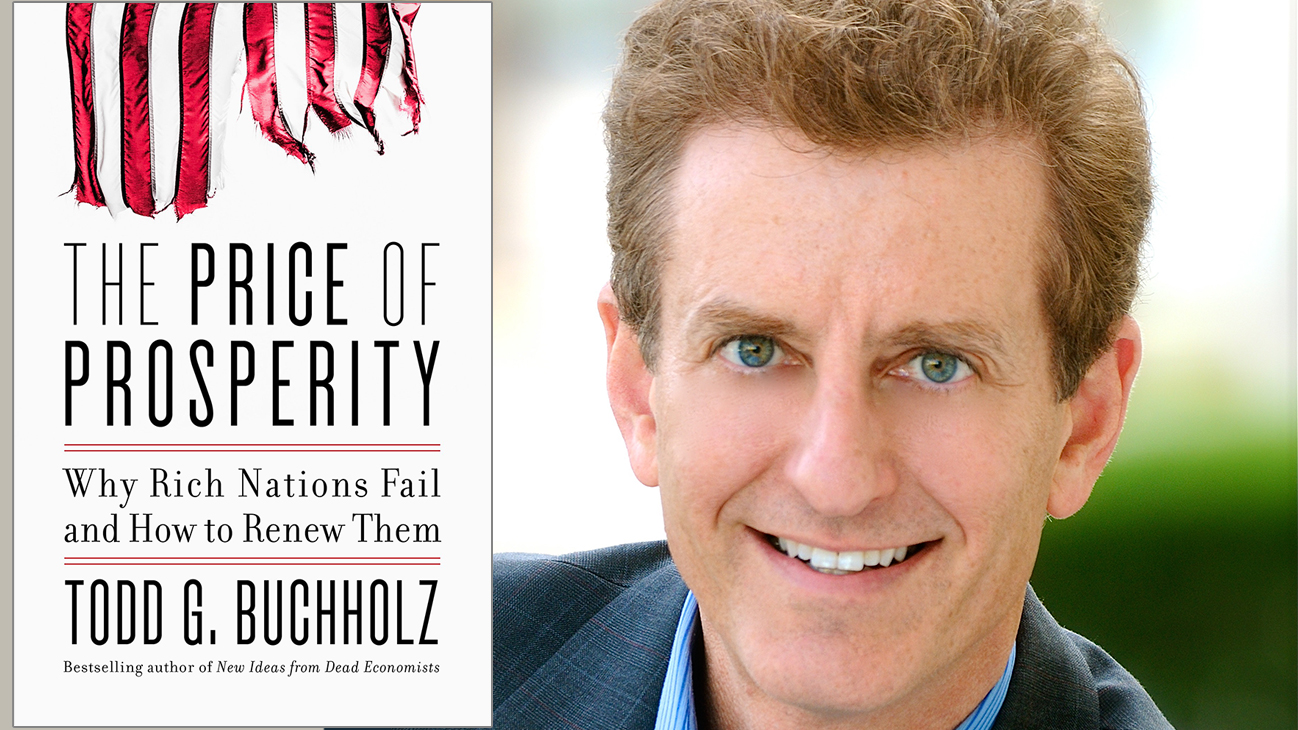A former associate director for economic policy at The White House and advisor to such investment firms as the Soros Fund, Goldman Sachs, and Tiger Management, Todd Buchholz targets his ideas to the cutting edge of economics, finance, and business strategy, covering terrain from the future of mutual funds and technology stocks, to the ageing population and how to survive in a chaotic economy. Todd’s new book, The Price of Prosperity: Why Rich Nations Fail and How to Renew Them, has just been published, exposing the economic, political, and cultural cracks that wealthy nations face and making the case for transforming those same vulnerabilities into sources of strength—and the foundation of a national renewal:
America and other developed countries, including Germany, Japan, France, and Great Britain are in desperate straits. The loss of community, a contracting jobs market, immigration fears, rising globalization, and poisonous partisanship—the adverse price of unprecedented prosperity—are pushing these nations to the brink.
Acclaimed author, economist, hedge fund manager, and presidential advisor, Buchholz argues that without a sense of common purpose and shared identity, nations can collapse. The signs are everywhere: Reckless financial markets encourage people to gamble with other people’s money. A coddling educational culture removes the stigma of underachievement. Community traditions such as American Legion cookouts and patriotic parades are derided as corny or jingoistic. Newcomers are watched with suspicion and contempt.
As Buchholz makes clear, the United States is not the first country to suffer these fissures. InThe Price of Prosperity he examines the fates of previous empires—those that have fallen as well as those extricated from near-collapse and the ruins of war thanks to the vision and efforts of strong leaders. He then identifies what great leaders do to fend off the forces that tear nations apart.
Is the loss of empire inevitable? No. Can a community spirit be restored in the U.S. and in Europe? The answer is a resounding yes. We cannot retrieve the jobs of our grandparents, but we can embrace uniquely American traditions, while building new foundations for growth.

